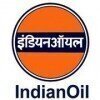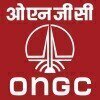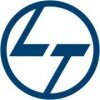Filter interviews by
China Petroleum Engineering & Construction Corporation Instrumentation Technician Interview Questions and Answers
China Petroleum Engineering & Construction Corporation Instrumentation Technician Interview Experiences
1 interview found
I applied via Company Website and was interviewed before May 2021. There was 1 interview round.
(1 Question)
- Q1. Troubleshooting repair calibration and test various types of process control instrument
- Ans.
As an instrumentation technician, I am skilled in troubleshooting, repairing, calibrating, and testing various types of process control instruments.
I have experience in identifying and diagnosing problems with instruments and determining the appropriate solutions.
I am proficient in repairing and replacing faulty components and ensuring that instruments are functioning properly.
I am knowledgeable in calibrating instrume...
Interview Preparation Tips
Top trending discussions






Interview questions from similar companies

(3 Questions)
- Q1. What is current
- Ans.
Current is the flow of electric charge in a circuit.
Current is measured in Amperes (A)
It is the rate of flow of electric charge through a conductor
There are two types of current - AC (alternating current) and DC (direct current)
Examples of current include the flow of electrons in a wire when a light bulb is turned on
- Q2. What is voltage
- Ans.
Voltage is the difference in electric potential between two points in a circuit, measured in volts.
Voltage is the driving force that pushes electric current through a circuit
It is measured in volts (V)
Voltage can be positive or negative, depending on the direction of current flow
Higher voltage means more potential energy available to move electrons
Example: A battery provides voltage to power a light bulb
- Q3. What is Ohm's law
- Ans.
Ohm's law states that the current flowing through a conductor is directly proportional to the voltage applied across it, and inversely proportional to the resistance of the conductor.
Ohm's law is expressed as V = I * R, where V is voltage, I is current, and R is resistance.
It helps in calculating the current flowing through a circuit when the voltage and resistance are known.
It can also be used to determine the resista...
Interview Preparation Tips

Instrumentation Technician Interview Questions & Answers
Reliance Industriesposted on 12 Sep 2024
(1 Question)
- Q1. How to install temperature transmitter
- Ans.
To install a temperature transmitter, you need to properly mount the transmitter, connect the wiring, configure the settings, and test the transmitter.
Mount the temperature transmitter in a suitable location near the temperature source.
Connect the wiring according to the manufacturer's instructions, ensuring proper grounding.
Configure the settings such as range, output signal, and calibration using the transmitter's di...

Instrumentation Technician Interview Questions & Answers
Indian Oil Corporationposted on 3 Jan 2024
I applied via Approached by Company and was interviewed in Dec 2023. There was 1 interview round.
(3 Questions)
- Q1. Ritik Kumar Maurya
- Q2. Indian oil corporation limited Panipat
- Q3. One year apprentice training in Instrumentation and control

Instrumentation Technician Interview Questions & Answers
Saudi Aramcoposted on 5 Jul 2024
(1 Question)
- Q1. How much you earn

Instrumentation Technician Interview Questions & Answers
Schlumbergerposted on 25 Mar 2023
I applied via Job Fair and was interviewed in Feb 2023. There were 2 interview rounds.

(6 Questions)
- Q1. Any instrumentation equipment explain
- Ans.
Instrumentation equipment refers to devices used to measure, control, and monitor various parameters in industrial processes.
Instruments like pressure gauges, flow meters, and temperature sensors are commonly used in instrumentation.
Control valves and actuators are used to regulate the flow of fluids or gases.
Programmable Logic Controllers (PLCs) are used for automation and control of processes.
Analytical instruments l...
- Q2. PLC and scada and DCS
- Q3. PLC panel wiring diagram
- Ans.
A PLC panel wiring diagram is a visual representation of the electrical connections and components in a programmable logic controller panel.
A PLC panel wiring diagram shows the layout and connections of various components such as power supplies, input/output modules, relays, and sensors.
It helps technicians understand how the electrical signals flow within the panel and how different devices are interconnected.
The diag...
- Q4. What is the control valve
- Ans.
A control valve is a device used to regulate the flow of fluid or gas in a process system.
Control valves are commonly used in industries such as oil and gas, chemical, and power plants.
They can be operated manually or automatically through an electrical or pneumatic signal.
Control valves consist of a valve body, actuator, and positioner.
They can control variables such as flow rate, pressure, temperature, and level.
Exam...
- Q5. What is the transmitter
- Ans.
A transmitter is a device used in instrumentation to convert a physical measurement into an electrical signal.
Transmitters are commonly used in industries such as oil and gas, chemical, and power plants.
They are used to measure variables such as pressure, temperature, flow rate, level, and pH.
Transmitters typically consist of a sensing element, signal conditioning circuitry, and an output signal.
The sensing element det...
- Q6. What is the flow meters
- Ans.
Flow meters are devices used to measure the flow rate of a fluid or gas.
Flow meters are commonly used in industries such as oil and gas, water treatment, and manufacturing.
They can measure flow rates in various units such as liters per minute, cubic meters per hour, or gallons per minute.
Different types of flow meters include electromagnetic, ultrasonic, turbine, and differential pressure flow meters.
Flow meters can be...
Interview Preparation Tips
Skills evaluated in this interview

I applied via Company Website and was interviewed in Sep 2022. There were 4 interview rounds.
(4 Questions)
- Q1. How many years experience?
- Q2. What is tha qualification?
- Ans.
The qualification for an Instrumentation Technician typically includes a degree or diploma in instrumentation technology or a related field.
A degree or diploma in instrumentation technology or a related field is usually required.
Knowledge of electrical and electronic systems is important.
Experience with calibration and troubleshooting of instruments is often necessary.
Familiarity with industry standards and regulations...
- Q3. Is currently working?
- Q4. Before working company
(5 Questions)
- Q1. What is Thermocouple range?
- Ans.
Thermocouple range refers to the temperature range within which a thermocouple can accurately measure temperature.
Thermocouple range varies depending on the type of thermocouple used.
Common thermocouple types include J, K, T, E, and N.
For example, a type K thermocouple has a range of -200 to 1350 degrees Celsius.
It is important to select the appropriate thermocouple type for the temperature range being measured.
- Q2. What is anti surge valve?
- Ans.
An anti-surge valve is a control valve used in a compressor system to prevent surge and maintain stable operation.
An anti-surge valve is typically installed in the discharge line of a compressor.
It is designed to protect the compressor from surge, which is a phenomenon of unstable flow and pressure that can cause damage to the compressor.
The valve opens or closes based on the compressor's operating conditions to mainta...
- Q3. Are you working gas turbine?
- Ans.
Yes, I have experience working with gas turbines.
I have worked with gas turbines in my previous job as an instrumentation technician.
I am familiar with the maintenance and troubleshooting of gas turbines.
I have experience in calibrating and testing gas turbine sensors and instruments.
I have knowledge of the safety protocols and regulations related to gas turbines.
- Q4. How many types vibration is there in field?
- Ans.
There are three types of vibration in the field: axial, radial, and tangential.
Axial vibration occurs parallel to the axis of rotation.
Radial vibration occurs perpendicular to the axis of rotation.
Tangential vibration occurs at a right angle to both axial and radial vibration.
Vibration analysis is used to detect and diagnose problems in rotating machinery.
Excessive vibration can lead to premature failure of bearings, g
- Q5. Are you know that preventive maintenance jobs?
- Ans.
Yes, I am familiar with preventive maintenance jobs.
Preventive maintenance involves regularly scheduled inspections, cleaning, and repairs to prevent equipment breakdowns.
I have experience performing preventive maintenance on various types of instrumentation equipment, such as calibrators, transmitters, and controllers.
Examples of preventive maintenance tasks I have performed include checking for leaks, replacing worn ...
(2 Questions)
- Q1. Are you instrument technician?
- Q2. What kind of precautions need in Plant running time?
- Ans.
Precautions are necessary to ensure safe and efficient plant operation.
Regular maintenance of equipment and machinery
Proper training and certification of personnel
Strict adherence to safety protocols and procedures
Regular inspections and audits to identify potential hazards
Effective communication and coordination among team members
Use of personal protective equipment (PPE) as required
Emergency response planning and dri...
I am interested to work in maintenance field and troubleshooting
Interview Preparation Tips
- Gas Turbine
- Instrumentation Engineering
- Control Valves
- Sensors
- Transmitters
- PLC
- DCS Operation
- WMS

Senior Instrumentation Technician Interview Questions & Answers
TotalEnergiesposted on 14 May 2024
(1 Question)
- Q1. What is a Transmitter, types/functions and general configuration/calibrations
- Ans.
A transmitter is a device that converts a signal from a sensor into a standardized output signal for measurement or control purposes.
Types of transmitters include pressure transmitters, temperature transmitters, level transmitters, and flow transmitters.
Functions of transmitters include sensing a physical parameter, converting it into an electrical signal, and transmitting the signal to a control system.
General configu...

Control & Instrumentation Engineer Interview Questions & Answers
British Petroleumposted on 24 Jun 2024
I applied via Company Website and was interviewed in May 2024. There was 1 interview round.
(2 Questions)
- Q1. Types of Instruments
- Ans.
Instruments used in control and instrumentation include sensors, transmitters, controllers, and actuators.
Sensors: devices that detect changes in physical properties and convert them into electrical signals (e.g. temperature sensors, pressure sensors)
Transmitters: devices that send signals from sensors to controllers (e.g. signal transmitters)
Controllers: devices that receive signals from sensors and transmitters to re...
- Q2. PID loop working in Complete
- Ans.
PID loop is a control system feedback mechanism used in industrial processes to maintain desired setpoints.
PID stands for Proportional, Integral, Derivative
Proportional term responds to the current error
Integral term corrects past errors
Derivative term predicts future errors
PID controller continuously calculates an error value as the difference between a desired setpoint and a measured process variable
Example: PID loop...
Interview Preparation Tips

Assistant Engineer Instrumentation Interview Questions & Answers
Oil And Natural Gas Corporationposted on 5 Mar 2024
(2 Questions)
- Q1. How to work rtd
- Ans.
RTD stands for Resistance Temperature Detector, which is a temperature sensor that operates on the principle of the change in electrical resistance with temperature.
RTDs are commonly made of platinum, nickel, or copper and have a linear relationship between resistance and temperature.
To work with an RTD, you need to provide a constant current source to the sensor and measure the voltage drop across it.
The resistance of...
- Q2. Personal details
Interview Preparation Tips
Skills evaluated in this interview
China Petroleum Engineering & Construction Corporation Interview FAQs
Tell us how to improve this page.
Interview Questions for Popular Designations
- Control & Instrumentation Engineer Interview Questions
- Instrumentation Supervisor Interview Questions
- Senior Instrumentation Technician Interview Questions
- Manager Instrumentation Interview Questions
- Electrical & Instrumentation Engineer Interview Questions
- Assistant Manager Instrumentation Interview Questions
- QC Inspector Instrumentation Interview Questions
- Electrical & Instrumentation Technician Interview Questions
- Show more
Instrumentation Technician Interview Questions from Similar Companies

China Petroleum Engineering & Construction Corporation Instrumentation Technician Reviews and Ratings
based on 1 review
Rating in categories
|
HSE Officer
9
salaries
| ₹12.3 L/yr - ₹21.5 L/yr |
|
Procurement Engineer
7
salaries
| ₹22 L/yr - ₹42 L/yr |
|
QA QC Engineer
6
salaries
| ₹13.1 L/yr - ₹45 L/yr |
|
Electrical Engineer
6
salaries
| ₹28.8 L/yr - ₹48 L/yr |
|
Instrument Engineer
5
salaries
| ₹11 L/yr - ₹20.9 L/yr |

Larsen & Toubro Limited

Reliance Industries

BHEL

TCS
- Home >
- Interviews >
- China Petroleum Engineering & Construction Corporation Interview Questions >
- China Petroleum Engineering & Construction Corporation Instrumentation Technician Interview Questions






